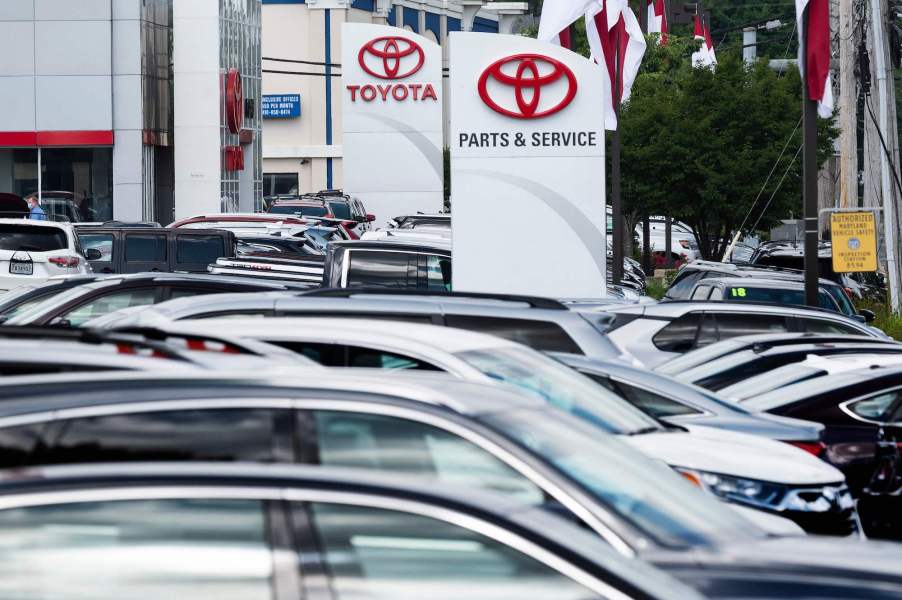
The Pandemic Has Broken the U.S. Auto Industry of a Bad Habit, AutoNation CEO Says
Cars are a necessity, and 2020 showed how quickly things could go wrong for the automotive industry. One of the main issues automakers are facing is, of course, the chip shortage, but it probably won’t last forever. Indeed, the auto industry could actually emerge from the crisis with better habits than before.
How the chip shortage happened

The COVID-19 pandemic caused disruptions worldwide, but one of the larger business disruptions happened in semiconductor chips. These chips are vital for modern cars and electronics. But in the early days of the pandemic, automakers saw that many were not buying cars. So they canceled their orders for chips. But when consumers began buying cars again, automakers suddenly didn’t have enough chips to put in their vehicles.
This problem grew worse due to other unforeseen issues, such as a fire at a factory, the massive winter storm that hit the U.S. in early 2021, and a drought in Taiwan. As a result of those complications, there are not enough chips to go around. In fact, automakers are looking at losing over $100 billion because of this chip shortage when all is said and done.
That’s a lot of money for automakers to lose, but it won’t last forever. Eventually, more chips will arrive, and the shortage will end. In addition, a bad habit that many American automakers had could also be over, thanks to the chip shortage.
The U.S. auto industry might finally stop overproducing cars
“The industry has understood that overproduction and excessive inventories as the old model is not where they want to be,” AutoNation CEO Mike Jackson told Bloomberg. “I really think there’s a new strategy going forward.”
As the word implies, overproduction saw automakers making more cars than consumers actually wanted to buy.
Since there were more cars than people who wanted them, automakers would use incentives to get those cars to dealers. Those incentives can be a bad thing, for automakers at least. But, of course, because there aren’t enough chips to make as many cars as automakers want to make, it’s difficult to overproduce now. However, due to the chip shortage, prices of new cars have also increased.
According to Jackson, automakers stopped offering those incentives, and as such, the current average price paid for a new car is $40,000. For reference, that price would be equal to some luxury cars not that long ago. Despite that high average price, sales and revenues are up for automakers and retailers such as AutoNation, Bloomberg reports. So even without overproduction, automakers are making a lot of money, and that’s a valuable lesson to learn.
Overproduction has been a bad habit in the auto industry
Though overproduction can be complicated, it’s not a new habit. One of the main causes of overproduction concerns the relationship between automakers and dealerships, Lean Blog reports. Because automakers “recognize revenue” when their cars ship to dealerships, it makes sense to deliver tons of cars to dealers, even if those cars aren’t in high demand.
There are other causes for overproduction, but they produce the same result: many extra cars that need to be sold. That’s why Fiat-Chrysler ended up overproducing about 70,000 cars in 2019. The result of that situation ultimately hurt the automaker’s profit margin. But if manufacturers stop overproduction as Jackson predicts, situations like that could be history.



